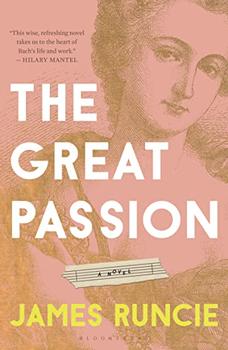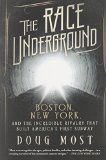Summary | Excerpt | Reviews | Beyond the book | Read-Alikes | Genres & Themes | Author Bio

A Novel
by Robert LohrIt is estimated that 300 million TV
viewers watched Garry Kasparov lose to IBM's Deep
Blue in 1997*. The audience was a lot smaller when
Wolfgang von Kempelen unveiled his Mechanical Turk
to The Empress Maria Theresia and her court in 1770,
but they were no less surprised to witness a machine
beat a man at chess. Little did they know that the
Turk was a very clever fraud, one of the most
elaborate hoaxes in history.
Although a fair amount is known about the life of
Wolfgang von Kempelen, nothing is known about the
chess player(s) who hid inside the machine, so Lohr
has liberally played with the known facts to create
the central character of Tibor, a deeply religious
and honest dwarf who, through circumstances beyond
his control finds himself in league with Kempelen
and on a slippery slope to defraud the high and
mighty of Europe.
Robert Lohr's attention to detail when describing
the sights, sounds and science of 18th century
Vienna and Pressburg (modern day Bratislava, capital
of Slovakia) is excellent. However, there were one
or two tiny slips that this reviewer (who is no
expert on the period) spotted. For example, when the
Mechanical Turk is first introduced to us through
the eyes of Tibor, the author refers to the Turk's
eyes hanging on two strings like useless optic
nerves. This is such an incongruous detail
(considering that a basic understanding of the
nervous system did not develop for another 100
years) that it caused this reader to read on from
that point with considerably more circumspection than
before.
Although the pacing is slow at times and some parts
could have been trimmed without loss to the main
flow, there is much to enjoy in The Chess Machine.
We experience moments of high drama and humor,
sometimes on the same page; swordfights and court
intrigues; plus a growing connection with and
concern for the big hearted man inside the little
body who has only his faith to hang on to as he is
drawn further and further into Kempelen's deception
and delusions of grandeur.
*Kasparov vs. Deep Blue: Former World Chess
Champion Garry Kasparov defeated IBM's Deep Thought
easily in 1989. Seven years later, a new improved
computer, Deep Blue, won the first of six games
against Kasparov but Kasparov fought back to win
overall with three wins and two draws.
A year later, in May 1997, Kasparov took on an
enhanced Deep Blue in a six game match; Deep Blue
won with two wins to one against, with 3 draws.
After the loss, Kasparov said that he saw signs of
deep intelligence and creativity in the machine's
moves, indicating human intervention during the
match. IBM denied any intervention during the games
so Kasparov requested printouts of the machine's
logs, which IBM refused to provide at the time (they
were later published on the web). Kasparov demanded
a rematch but IBM declined and retired Deep Blue.
![]() This review was originally published in The BookBrowse Review in August 2007, and has been updated for the
October 2008 edition.
Click here to go to this issue.
This review was originally published in The BookBrowse Review in August 2007, and has been updated for the
October 2008 edition.
Click here to go to this issue.

If you liked The Chess Machine, try these:

by James Runcie
Published 2023
From acclaimed bestselling author James Runcie, a meditation on grief and music, told through the story of Bach's writing of the St. Matthew Passion.

by Doug Most
Published 2015
The Race Underground is a great American saga of two rival American cities, their rich, powerful and sometimes corrupt interests, and an invention that changed the lives of millions.
Your guide toexceptional books
BookBrowse seeks out and recommends the best in contemporary fiction and nonfiction—books that not only engage and entertain but also deepen our understanding of ourselves and the world around us.